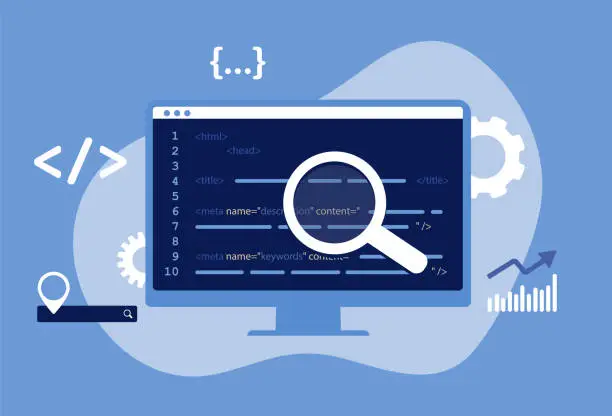What is Coding? Why Coding is Important to Learn?
Have you ever wondered how your favorite video game works or how websites come to life? The secret lies in coding, the language that tells computers what to do. Understanding the language of computers has become more than just a valuable skill—it’s a necessity. Coding, the art of writing instructions for computers to execute tasks, lies at the heart of this digital revolution. But coding isn’t just for programmers; it’s a valuable skill for students of all ages to learn. Before that do you know what is coding exactly, and why students need to learn from a young age?
In this article, I will explain what exactly coding is and why every student needs to know coding in this advanced era.
What is Coding?
At its core, coding is the process of giving instructions to a computer to perform specific tasks. Just like learning a new language, coding involves understanding and using a set of rules and syntax to communicate with computers effectively. These instructions can range from creating websites and mobile apps to solving complex problems and analyzing data.
In simple terms, coding is like giving a detailed set of instructions to a friend. Instead of words, we use a special language, a programming language, with clear rules that computers understand. By writing code, we can create anything from websites and games to robots and even self-driving cars! Didn’t it sound great?
But Why Coding is Important to Learn?
Why learn coding is important for every student? Why should students start learning early? There are so many reasons and so many benefits to learning coding at an early age. From problem-solving skills to building confidence, there are so many reasons. Let’s review why kids should learn this at an early age and what benefits they can get from this skill.
Here are Some Reasons Why Coding is Important to Learn:
Here are some compelling reasons:
1. Problem-Solving Skills:
Coding isn’t just typing. It’s a mental workout that builds problem-solving skills, logical thinking, and creativity. Students learn to break down complex tasks into manageable steps, a skill that benefits them in all areas of study. Programming challenges students to think logically and analytically, breaking down complex problems into smaller, manageable steps. Learning coding at an early age can help students develop critical thinking and problem-solving skills that are essential not just in computer science but in all areas of life.
2. Unlock the Fun of Creation:
Programming allows students to turn their ideas into reality. Imagine building your own game or designing a program that solves a math problem! Whether it’s designing a game, building a website, or creating an interactive story, coding provides a platform for students to express themselves and explore their imaginations. So, coding fosters a love for learning and empowers students to become creators, not just passive consumers, of technology.
3. Computer Programming is the Future:
The world is increasingly reliant on technology, and coding skills are in high demand. So, we can say that programming is a fundamental skill that opens doors to countless opportunities. By learning to code early, students gain a valuable advantage in a competitive job market. From software development to robotics and artificial intelligence, the demand for coding skills spans across various industries. Students are better equipped to navigate the digital landscape and thrive in future careers by learning it early. It will help to open doors to exciting careers in computer science, engineering, and even fields like medicine and design.
4. Coding teaches children how to think:
Coding isn’t just about creating fancy apps or websites. At its core, it’s a language that teaches children a powerful way of thinking. Imagine a child who wants to build a game. Programming forces them to break this big idea into smaller, more manageable steps. They have to think about the characters, the environment, the rules, and how each element interacts. This skill of decomposition translates beautifully into other areas of study. Math problems become easier to solve when broken into steps, and writing assignments become clearer when the main points are identified.
5. Coding helps children to have fun with math:
Programming skills can transform math from a subject of memorization and worksheets into a fun and engaging playground for children. Coding relies heavily on fundamental math concepts. Things like loops (repeating a set of instructions), variables (storing values), and conditional statements (making decisions based on conditions) are all building blocks of code. By using these concepts to create games or animations, children see the practical applications of math, making it more interesting and relevant.
Programming allows children to see math concepts come to life. Imagine using geometric shapes to build a race track or using calculations to determine the trajectory of a ball in a game. By visualizing these concepts, children gain a deeper understanding of math principles.
6. Collaboration and Communication:
Coding often involves teamwork, with students collaborating to solve problems and complete projects. Through collaborative coding activities, students learn to communicate effectively, share ideas, and work together towards a common goal—skills that are essential in today’s interconnected world.
7. Boost Confidence and Resilience:
Programming can be challenging, but the feeling of accomplishment when your code works perfectly is unbeatable. Overcoming coding hurdles builds resilience and problem-solving skills, giving students the confidence to tackle any challenge.
8. Demystify the Digital World:
Understanding the basics of code allows students to see behind the curtain of technology. So, they learn how websites and apps function, making them more informed and responsible digital citizens.
Remember:
Remember, programming isn’t just about complex algorithms. Many age-appropriate resources and interactive games are available to make learning code engaging and fun for students of all ages. By introducing them to these concepts early on, we can nurture a generation of creative problem-solvers who are ready to thrive in the digital age.
Wrapping Up!
Coding is not just about learning a new skill—it’s about preparing students for the future. So, by introducing coding education early, we empower students with the tools they need to succeed in an increasingly digital world. From problem-solving and creativity to collaboration and resilience, the benefits of early programming education are boundless, paving the way for a brighter and more innovative future.






Post Comment
You must be logged in to post a comment.